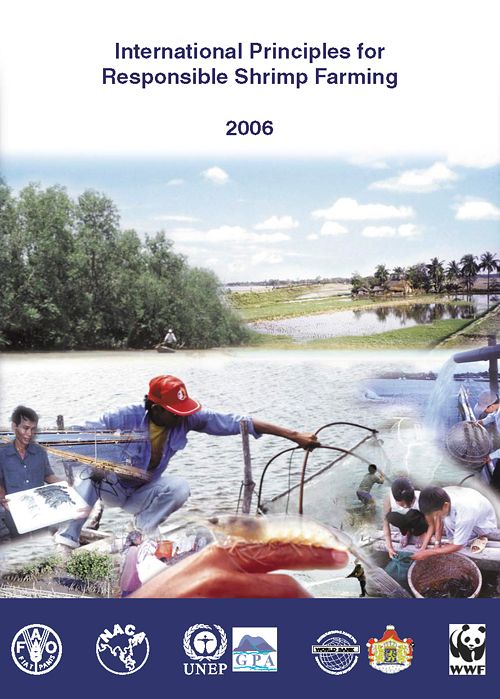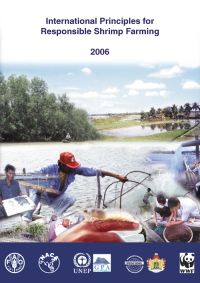International Principles for Responsible Shrimp Farming
22 August 2006 | 1289 Downloads | .pdf | 680.11 KB | Better management practices, Shrimp
Shrimp farming is one of the fastest growing aquaculture sectors in many parts of the world and also one of the most controversial. Rapid expansion of this sector generated income for many countries, but has been accompanied by rising concerns over environmental and social impacts.
The International Principles for Responsible Shrimp Farming provide the basis upon which stakeholders can collaborate for a more sustainable development of shrimp farming.
The International Principles have been developed by the Consortium on Shrimp farming and the Environment, which consists of the Food and Agriculture Organization of the United Nations (FAO), the Network of Aquaculture Centres in Asia-Pacific (NACA), the Global Programme of Action for the Protection of the Marine Environment from Land-based Activities of the United Nations Environmental Programme (UNEP/GPA), the World Bank (WB) and the World Wildlife Fund (WWF).
The principes address issues including farm siting, farm design, water use, broodstock and postlarvae, feed management, health management, food safety and social responsibility.
Creative Commons Attribution.

